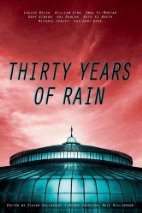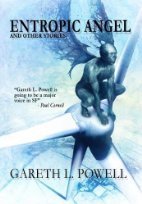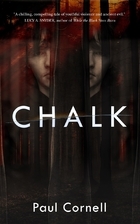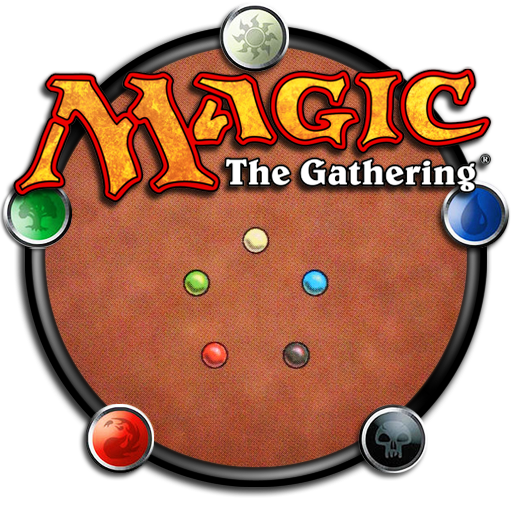Pete Sutton's Blog, page 18
August 23, 2017
Blogging
Having returned from Con-land for now and done my edits for Infinite Dysmorphia (for now) and span a few other plates I have a brief amount of time to update the blog.
I’m going to have a new interview, with author Brian Craddock, up soon and I need to update the discoverability challenge – which so far I’m keeping up with except for reviews! I may even review a book or two outside the challenge…
In the meantime I have just received the latest iterative edit on Seven Deadly Swords so need to roll my sleeves up and tackle that


August 2, 2017
Convention news
This year I’ll be at 9 Worlds once again – I’m not on any programming so I’ll be mostly hanging around the bar or in the audience.
Then I’ll be flying off to Finland for WorldCon
I’ll be on two panels –
Thursday Aug 10 10:00 AM to 11:00 AM (1 hour)
Where: Messukeskus – 101c
Tags: fantasy literature history
Historical Fantasy: What is it and how does it differ from fantasy or historical fiction? What makes for good historical fantasy? What are some variations within this genre? How can it illuminate our understanding of the past and future?
Where I’ll probably be talking about my forthcoming novel Seven Deadly Swords (Grimbold Books)
&
Friday Aug 11 05:00 PM to 06:00 PM (1 hour)
Where: Messukeskus – 205
Tags: literature science fiction fantasy
Weird Fiction is alive and well and, perhaps, weirder than ever! Fans and authors discuss the genre, its popularity and legacy.
Where I’ll definitely be talking about A Tiding of Magpies and Sick City Syndrome both are definitely in the Weird genre. As will be the next novel The Certainty of Dust
In September I’ll be at FantasyCon where the British Fantasy Awards will be announced and A Tiding of Magpies has been shortlisted for best collection. I’m also a judge on the Best Novella category and we’ve had some interesting discussions about the shortlist.
Then October is a busy month where I’ll be helping run 3 big events: Bristol HorrorCon, Bristol Festival of Literature and BristolCon (this is why I usually take holiday in November!) – More details on them when the programs are revealed. I will be appearing several times during those events…


July 21, 2017
Doing it wrong part two: On writing every day
[image error]
Part one is here
Pick up pretty much any ‘How To Write’ book and they’ll tell you that in order to be a proper writer you should write every day. Some suggest getting up an hour earlier than you need to and write for an hour.
Get out of bed a whole hour earlier than you need to?!
My brain is mush in the mornings – takes a while to get the motor running and I constantly seem to be sleep deprived anyway as my natural inclination is to stay up late, and sleep late. But I’m not allowed to sleep late as I have a day job…
But a great many ‘How To’ books advise that the morning is the best time to work – before the brain is cluttered. I intellectually get that, but it just doesn’t gel with me. Admittedly some books do say that some writers are night owls but even those tend to say that you should write every day.
[image error]
I can see the logic here. And what this is meant to inculcate – if you write every day then writing becomes a habit and therefore easier.
I lead a pretty busy life. We all do. As well as having a day job, which often includes foreign travel, and writing I also organise a writing group as well as help organise 3 large events (Bristol Festival of Literature, Bristol HorrorCon and BristolCon – and plans are afoot for a new event from next year: WestCon). But that’s not why I don’t write every day.
What I learned from NaNoWriMo and Clarion Write-a-thon; as well as writing Sick City Syndrome in a couple of months to hit a tight deadline. Is that the well runs dry pretty damn quick for me. I’m a battery not a dynamo. I have a limited amount of energy to put into a project at any one time and once it’s exhausted I then have to recharge. It’s not energy that’s available every day.
[image error]
I’m also a sprinter not a marathon runner when it comes to doing tasks. Ironic as I was rubbish at sprinting and was much more a long-distance runner in my youth. I’m pretty bad at maintaining momentum and doing long tasks. My interest/attention isn’t with daily increments. Hence I’m bad at e.g. exercising/dieting. I’m a fairly intuitive learner, and learn by doing but if I don’t get something the first few times my brain kind of switches off and it becomes very difficult to motivate myself to continue learning.
I think I’m naturally a short story writer because of this – that’s more of a sprint than a novel (although I have been known to work at a short story for weeks at a time).
Different strokes for different folks. So why do 90% of writing books insist that you should write every day?
Some of this is linked to two other pieces of advice/received wisdom that are often counterproductive:
Splurge then cut & writers get antsy when they don’t write.
Firstly I get the – proper writers get antsy if they can’t write. I’ve observed this phenomenon. But personally, as ably demonstrated that I only started writing in 2013, I’m not one of those people. I remember reading an essay by a novelist and literature lecturer which started out by saying that he was only interested in writers that had a fever to write. I’m the direct opposite – I have to be dragged kickign and screaming to the word mines – I’m Douglas Adamsesque in that regard (although I’m better at hitting deadlines). But many of my writer friends report that they become ‘not nice to live with’ if they haven’t written for a while.
On splurge then edit – I mentioned this in the first post wrt King’s On Writing. I’d taken it as gospel that real writers create a first draft then have to cut it by 25%. Now I’d prune, sure, everyone creates flabby prose, but I’d also have to add stuff. When I first started – a lot of stuff. I tend to brevity & had the unfortunate beginning writer quirk of – ‘it makes sense in my head so no need to explain it to the reader.’ As I said previously it wasn’t until I was at a workshop and under-writing was explained that I twigged that I wasn’t doing it wrong, it’s just that I was a very different writer to Mr King.
I do wonder if the ‘write every day’ crowd are also on the splurge then edit kick too?
If you’re a writer, drop me a comment – do you write every day? Do you feel guilty if you don’t, but secretly know that writing every day isn’t good for your process?


July 14, 2017
British Fantasy Awards 2017
A Tiding of Magpies has been shortlisted for the BFS Awards this year. I am stunned and very happy! It has some very stiff competition –
Best collection
The Parts We Play – Stephen Volk
Secret Language – Neil Williamson
Sharp Ends – Joe Abercrombie
Some Will Not Sleep – Adam Nevill
A Tiding of Magpies – Pete Sutton
The Unheimlich Menoeuvre – Tracy Fahey
and I’m very much having Imposter Syndrome over it!
It’s great to see a lot of personal friends also shorlisted and big congrats to everyone & good luck!
I am one of the jurors for the Novella category and I know it’s going to be hard to pick an outright winner having read most of them so far…


June 27, 2017
Briefly popping in
Just a quick update post. “Doing Things Wrong Part 2” will be coming soon (for a given value of soon) and will be on the subject of writing every day.
I’m working on Infinite Dysmorphia as editor (with Sammy Smith as co-editor) and that’s been keeping me busy. I’m also editing another anthology which is for charity – more details as they become clearer.
The next thing I have out may be an essay in the Body Horror Book as I haven’t written many shorts this year as I’ve been editing Sick City Syndrome. or could be my essay in Know Your Place. I’ve also planned out the Novella (as yet untitled) in the Ferryman universe which series appeared in Far Horizons (Talking of which they are still going, although I have stepped aside as editor, possibly only a hiatus, possibly…) and The Certainty of Dust – the next novel, for which I signed the contract with KGHH today!
I will be at Nine Worlds – I volunteered for the program but haven’t heard anything so am assuming I’m surplus to requirements and will be there as a punter only. I’m also going to WorldCon for which I’m on two panels (as it stands) – this will be my second Con in Finland!
I’ve also accepted a jury position on the BFS awards for the Novella category – more news when possible. This is my first time as a juror and the books on the list are very interesting – so am looking forward to the whole process. And yes it does mean that I’ll be at FantasyCon too.
In addition to the writing I’m helping to organise Bristol HorrorCon for the third time, Bristol Festival of Literature for the fifth time and BristolCon for the first time.
Next year I might just do a “writing year” and take a break from editing and event organising – although I do enjoy it they do take away time from the writing…


May 31, 2017
Doing it wrong (according to the ‘How to’ books) Part 1 – Keeping a Journal
OK so that’s a long title! As per my blog post “Writing books and the Writer” you’ll have seen that I read a lot of writing books. Of the “How To” variety, as well as ones on language and from writers on writing. I feel moved to write a series of “Doing it Wrong” because I can’t be the only one out there that has some success as a writer (for a given quality of success) that isn’t doing what they recommend.
[image error]
I remember when I was first starting out and was at a writing workshop at Bristol Festival of Literature the workshop leader told us about under-writing (writing too little and adding detail on a second draft) and I realised that because I had only read “On Writing” by Steven King I had been thinking that I was doing writing wrong all along – because King is an overwriter (writes too much and cuts on a second draft). It wasn’t until someone articulated the underwriting thing that the penny dropped.
I’ve immediately got two “Doing it Wrong” burning topics and will no doubt come up with more. So this is a part one of a possible longer series or it may just possibly a two-parter. And to start off I’ll tackle the advice that most “How to” books start with – Keeping a Journal.
I understand that it can be a good idea for many writers. If you’re the kind of writer whose brain is fizzing with ideas and you can’t keep track of them without writing them down then obviously a journal is a good idea. Journaling could also be a good way to log observations – on people, conversations, journeys etc. However, the idea that you need to carry a journal with you everywhere you go can be counterproductive for some people. It was counterproductive for me.
I’m not a natural diarist, I’ve never kept a diary but I tried the whole keeping a journal thing because it is almost ubiquitous advice on how to be a ‘proper’ writer. I ended up schlepping blank books around for a while. I have a collection of notebooks that I either didn’t fill or filled with cryptic, useless bullet points that made no sense to me later if I even thought to check.
Because I’m not a very organised person I ended up with several different partly filled reporters notepads and if I did jot something down that I later remembered and wanted to use, trying to find it was annoying. I also did that classic thing of starting with best intentions and jotting down lots in the first few days then wrote less and less, and less and less often, as time passed. I ended up feeling guilty that I wasn’t journaling, generating and developing ideas on a daily basis. The empty notebooks became burdens.
So how do I do it instead? I chew over things in my headspace and my ideas need a fair while to ferment before they’re ready to be written down. Writing them down before they’re ready is like taking the top off a bottle of coke, if you don’t use it straight away it goes flat. In the process of writing it down it becomes a little fixed and it escapes the headspace. I stop thinking about it in those idle stare out the window moments. And if I’ve written it down, and not used it, coming across it later when the neural pathways have been re-routed means it no longer fizzes for me.
Maybe it’s simply a justification narrative for laziness but I do think that trying to keep a journal was counterproductive for me. My best stories, or at least what I think of as my best stories, lived inside my head for a long time before I attempted to write them down. That’s not to say that they fall out of my head fully formed (although that has happened) but more that they’re ready to be worked upon if they’ve been given some time to bubble away in the subroutines of my semi-consciousness.
So am I doing it wrong?


May 25, 2017
Holding pattern
At the moment I’m planning out a novella and a novel whilst waiting for my edit to come back on Seven Deadly Swords. I’ve also got a couple of short story deadlines. But oddly I’ve got that ‘end of term’ feeling and finding it very hard to knuckle down to work.
The North Bristol Writers are doing a “My writing career” workshop in June and it has me re-evaluating why I write, what I want from it, what writing success is etc. So it feels a little fateful today to read Hannah Berry’s post on why Livestock will be her last GN
If you’ve not read Hannah’s work I highly recommend it & I’ve been waiting impatiently for this one for years (but Hannah Berry is not my bitch and I’d never hassle her about taking time to create) But it makes you think. Why do this?
Next year I’ll have been writing stories for 5 years – it’s not long – and I’m lucky enough to have the time to do this whilst also having a full-time job. I went into it with an open mind – let’s see if I can get a story published. I’ve done that, what’s now my metric of success?
I don’t know – I’ll let you know once I’ve figured it out!


May 5, 2017
Structures and Developments
Earlier this week I sent the manuscript of Seven Deadly Swords to my editor at Grimbold. This is after a fairly hefty restructure and rewrite after the structural/developmental edit.
It’s been to beta readers and they all had good comments but it seems like after extensive electronic scissors and pots of glue, moving chapters around, completely rewriting one character and snipping 20,000 words (and writing a new 10,000) I managed to not introduce any plot holes. Which is a major relief!
Seven Deadly Swords was mostly written in 2013/14 when I was just learning the craft. It showed. It had a hefty rewrite after an editorial going over by the fabulous Joanne Hall (Hi Jo!). Then went into submissions. I got a few interested bites from agents, including one request for a rewrite/resubmission and it was rewritten again.
Then Grimbold agreed to take it, on the proviso that I change the tense. That was a faff, but not a strong rewrite.
Now it’s had another rewrite – and the line edits are to come, so further changes afoot.
I strongly suspect that some of this process of rewriting would have been avoided if I’d planned the book better. I’m an exploration writer (or pantser if you like that term) but plan as I go along. That’s also how I wrote Sick City Syndrome.
I’m going to plan the next piece of writing with much care, and see if that makes a difference…
Still it’s nice to see Seven Deadly Swords inching closer to publication…


April 28, 2017
Some reviews

Thirty Years of Rain – Edited by Elaine Gallagher, Cameron Johnston & Neil Williamson
Published by Taverna Press (20 Sept. 2016)
This is a collection of stories and poetry from members of the Glasgow science fiction writers group. When the North Bristol writers group created its first anthology North by Southwest one criticism, that we attempted to turn into a strength, was that the book was incredibly eclectic (we had a very loose theme of ‘North’). Although Thirty Years of Rain has a similar issue, with only ‘science fiction’ to bind them, it does make eclectism work.
There are some familiar names in here, and some I’m less familiar with but the level of quality in the stories was consistently high. There’s around 30 stories in the book across the range of SF so there is something in here for every type of SF fan I think.
Standouts for me were: TJ Berg’s tale of grief The Freedom of Above, which was a very human story but still managed to have a big SF idea at its heart; Headkiller by Michael Cobley which was a PKD style story of future assassins; The Marquis of Alcatraz by Richard Mosses which revolved around an unknown Dumas novel; The Lodger by Brian M Milton an epistolic tale about alien refugees and in contrast to that one Neil Williamson’s affecting tale of refugees from a broken Earth – Foreign Bodies. There were very few stories that didn’t hit the spot, and no duds at all. – that is unusual in a collection. Recommended.

Entropic Angel by Gareth L Powell
NewCon Press (24 April 2017)
I’ve been lucky enough to hear Powell read some of these stories at various events but it’s nice to sit down and read them through. It’s also nice to get a bit of explanation at the end of the stories as the author relates what inspired the story.
Powell won the BSFA for his his novel Ack-Ack Macaque in 2013 and at least one of the stories in this collection was also nominated for the award. So you know you are getting some good writing.
Standouts were The Last Reef, a tale of AI evolution, Gonzo Laptop a story written in response to Hunter S Thompson’s death, Hot Rats a flash fiction about travelling in time and Memory Dust which had more than a hint of Lovecraft to it. But I enjoyed the whole collection, these are just the ones that I enjoyed especially. The majority of these stories have made the grade and been published in magazines. This is a nice collection and it’s interesting to see Powell’s inspirations and influences – Gonzo, the beats, some Banks perhaps.
Overall – a very enjoyable collection. Recommended.

The Enclave by Anne Charnock
Newcon Press (10 Feb. 2017)
Other reviewers like this book because it allows them to live a little longer in the world of her novel A Calculated Life. However I’ve not read the novel, but after reading this novella I would like to. It seems like a well-drawn world and Charnock writes with both grace and heart. This novella is the story of a young climate change refugee, Caleb, who has been sold into indentured servitude to Ma Lexie in The Enclave of the title. Ma Lexie’s crew recycles trash into sellable goods. Caleb demonstrates aptitude and skill in sewing clothes and allowing Ma Lexie to make money in the market. He also has a remote friendship with another such as himself in a neighbouring Enclave who he communicates with by putting messages in a bottle which he tosses over the gap between buildings.
This is an interesting, character driven, social and political science fiction. I will be checking out A Calculated Life based on my enjoyment of this novella.
This is one of four novellas from Newcon Press that are collected in a beautiful box set.

Chalk by Paul Cornell
St. Martins Press-3PL (21 Mar. 2017)
After a gentle introduction to the mystical English setting of Wiltshire with its chalk hill figures Cornell then hits you with an astonishing incident of bullying that is breathtakingly brutal. I admit that I didn’t think the novel could sustain itself after the opening; I didn’t see how the stakes would be increased. However any scepticism was soon dispelled as the supernatural element of the plot kicked in.
You get some typical Cornellisms – the TV program Doctor Who plays a part, there is a psychogeographical overlay of mystical history over the landscape and there are characters that, like us at first, don’t understand the supernatural forces that buffet them.
There are some excellent ideas in here, like scrying using number one singles and the overall concept of the story (which I won’t give away) and there was an extra frission for myself as it’s set in the early 80’s with a protagonist roughly the age I was at the time. But this is no nostalgia trip. If anything it is anti-nostalgic, a reminder of the darker parts of growing up, the lack of control you have, the intense peer pressures, status battles. This is the best of Cornell’s work I’ve read so far.


April 26, 2017
Guest post by Titus Chalk – A lesson from Bristol
Today’s guest post comes from Titus Chalk who has written a history of Magic: The Gathering called Generation Decks
I’ve spent plenty of time playing this game but, unlike many of my friends, never got caught up in the collecting aspect of it. I saw some people spend thousands of pounds on collecting cards and in our little circle of gamers we called it Crack: The Gathering. Because some people seemed to become addicted…
[image error]
Titus Chalk is a freelance writer currently based in Berlin. His itinerant life has led him from the UK to New Zealand and France and now, to the German capital. Having learned to play Magic: The Gathering in early-nineties New Zealand, he has been lugging a cupboard full of cards with him ever since, with many of the rarest in his collection worth more than their weight in gold. He loves Magic, has made friends for life playing it, but remains a critical and curious guide to the enthralling game.
[image error]
Titus lived in Bristol and his post is entitled – A Lesson from Bristol
If there’s a thread running through my new book Generation Decks: The Unofficial History of Gaming Phenomenon Magic: The Gathering, it’s the value of community. While it recounts first and foremost the development of an iconic game, it’s also the story of the players who flocked to it – including myself – desperately searching for something bigger to belong to. I admit, I feel like I have had problems fitting in for much of my life. But if there’s one place that taught me the value of community, it’s Bristol.

I lived in Bristol as a student from 2001 to 2005, a time I look back on with great fondness. Sure, I got off to a rough start, trapped up in student halls surrounded by braying London kids who had invaded Bristol in an armada of Volkswagen Golfs. But once I had made a few like-minded friends – friends who emboldened me to explore the city beyond Clifton – I was hooked. Bristol was home to joyous highs and numbing comedowns – and the creative scene hummed with ideas born from both.
With drum n bass yielding diminishing returns and trip-hop a dirty word, it felt like the city was grasping for something new. DIY record labels like Clean Cut and Float fed into that, putting out cerebral electronica and staging ramshackle live nights that capitalised on a moment before laptops became ubiquitous. For more physical needs there were the likes of Emergency, Kingpin, Toxic Dancehall and any number of sprawling free parties that lasted till dawn beneath railway tracks.

What made it a community though? Well, in part the city’s small size – the high likelihood you would bump into someone from a dancefloor on the street and share more than a gurning high-five. The physical infrastructure was there to support the scene, too, from basements on Stokes Croft Road to record shops on Park Street (halcyon days). And then there was an internet forum for devoted party-goers, Hijack, which helped us all coalesce before social media became a thing. While I wasn’t making music myself, I felt genuinely involved, appreciated even, just for bringing to each party a determination to contribute to the atmosphere rather than to simply consume it. It was a heady time, a nourishing time.
When I left for a journalism job in London, I lost all that. Still, I set great store in getting on. In learning a craft. In earning money in some kind of recognisable career – rather than drifting in an aimless job in Bristol that paid for partying and not much else. Though it was a wrench to leave friends, I felt like Bristol might stifle me if I stayed – that my drive to do anything might be tamed by the mild, mild West.

Looking back, aged 36, a freelancer in faraway Berlin, part of me is sure I made the right decision. That at some point, you have to break away from your student life and seek out quite what it is that you want to do. But having moved on from a full-time job to seek out something more creatively rewarding, to be taking my first tentative steps away from journalism, to be delving deeper into the art of writing fiction… I can see more clearly than ever the value of the community I left behind in Bristol. The gaming community I discovered during my time playing Magic: The Gathering empowered me to write a book about it. But that realisation has only made me pine more for an environment that can help me progress my writing in the same way.
So, sometimes when I should be editing a troublesome passage, I wonder to what extent Bristol offers that in 2017. Friends who have stayed have prospered in their own ways – and I’m sure have had their self-belief bolstered by the people around them. Perhaps then the city’s solidarity is still intact – despite a pincer attack from gentrification and austerity. Perhaps writers, artists, musicians, street artists and skateboarders are still prospering, propped up by their peers in the best possible way, the close-knit community I discovered there still thriving. Because there was always something in the Bristol air – beyond the tang of a million joints blazing in the sun. Call it hope. That we could achieve more together than we could alone.
Thanks to Titus for the nostalgic trip back! I left Bristol when I graduated and returned a few years later to never leave again. Bristol regularly gets a “best city” write up and does feel special. The creative scene is amazingly diverse and supportive and I’ve been told by incomers that it beats other cities hands down. I would say though that it is a grassroots city and a collection of communities (albeit ones that sometimes overlap).
I look forward to reading Titus’s book and recommend you to go and check it out.
Generation Decks: The Unofficial History of Gaming Phenomenon Magic: The Gathering
Solaris (6 April 2017)
You can follow Titus on Twitter @tituschalk & find out more about him here


Pete Sutton's Blog
- Pete Sutton's profile
- 14 followers



